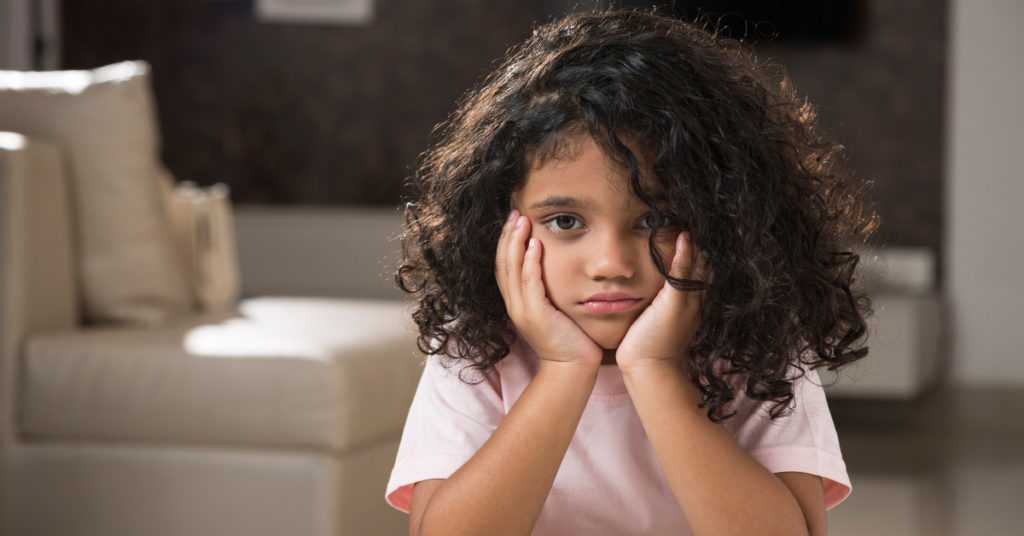Your attempts to communicate the reason to an anxious child or a child who struggles to pay attention may not be helpful. Either your frustration will cause you to say something hurtful, or you will try to appease the child by allowing them to avoid their anxiety completely.
However, a kid’s anxiety or attention disorder can provide an opportunity to teach them powerful coping mechanisms that they can use for the rest of their lives. The below-mentioned phrases might sound familiar to you as a parent or teacher, but they should be avoided. Let’s look at why they’re ineffective, as well as some alternative phrases that might work better.


Things an Anxious Child Does Not Want to Hear From You
“There is nothing to be afraid of.”
It’s tempting to tell a child that there’s nothing to be afraid of when they express their concerns. However, we are “shutting down” the child, which can be frustrating for them. Instead, validate their emotions and open the door to a discussion about why they are feeling the way they are. You could also serve as an example of mindfulness and relaxation techniques such as slow breathing.
Try Instead: “I know how you’re feeling. Is there anything I can do to make you feel better?”
“It’s all going to be okay.”
While reassuring a child that everything will be fine may appear to be supportive, but you risk making a promise that you couldn’t keep and lose trust. When dealing with children who seem to have anxiety or attention disorders, it’s best to avoid making broad generalizations and instead begin thinking the ways to help themselves.
Try Instead: “I understand you’re scared, and that’s fine. Is there anything you can do to improve your mood?”
“It is all in your head.”
Telling an anxious kid that their worries are all in their head and thus unreal just shames the child for not thinking in the “right” way. Instead, acknowledge the child’s feelings while providing practical ways for them to quiet their minds and reconnect with their bodies. Limiting screen time, which may stimulate the child’s mind even more, and engaging in physical activity such as yoga or walking can help to calm the child’s racing thoughts and help you connect.
Try Instead: “Your mind appears to be very active right now. Let’s go for a walk and gather some new ideas together.”
“Look at the other kids. They are not worried.”
For the child, a statement like this can be humiliating. They may feel inferior to their non-anxious peers and self-conscious about themselves. The statement is also rarely effective in alleviating anxiety. Instead of making your kids feel isolated from their peers, tell them that everyone worries from time to time and that it’s perfectly normal. Simply understanding that they are not alone in their anxiety could help kids feel better.
Try Instead: “I’m sorry you’re in such a bad mood. I know it doesn’t feel good because I’ve experienced it myself. Everybody gets worried now and then.”
“Do not worry; I will fix it.”
In the short term, trying to teach an anxious kid to avoid the stuff they are frightened of will help them feel better, but it will only reinforce their anxiety in the long term. If a child expects their parent or teacher to remove the stressor or whisk them away from it, they will learn to cope by escaping or relying on others to solve their problems. Instead, empower your child by being empathic, assisting them in understanding their fears, and inspiring them to confront their fears.
Try Instead: “I understand your concern, but you are capable of completing this task. If you require assistance, I am available to assist you.”


Also Read: 6 Practical Ways to Help a Child Manage COVID-19 Anxiety
Learning how to communicate effectively with a child who is suffering from anxiety or perhaps an attention disorder takes time and practice. If you make a mistake, don’t be so hard on yourself. Your child will feel more empowered if you practice addressing anxiety and providing useful coping mechanisms.
From the facts highlighted above, it must be remembered that the best way to make them feel comfortable for children with anxiety is to express your affection, compassion, and gentleness towards them. The anxiety would decrease once they feel safe and cared for.
If you think you need guidance with your child, then you can find the best child specialist in Lahore or any other main city from where you belong through Marham. A wise man once said, “People may forget what you say or do, but they will never forget how you make them feel.”
FAQs
1. What triggers a child’s anxiety?
Serious illness, loss, violence, death of a loved one, or abuse can make some kids anxious.
2. Can anxiety be cured?
Although anxiety is not possible to cure, there are ways to keep it from becoming a significant issue.
3. At What age, anxiety usually start?
According to the Anxiety and Depression Association of America, symptoms usually appear in childhood, with an average onset age of 7 years.
4. Is my kid’s anxiety my fault?
Although it is not your mistake that your kid is anxious, some of the parenting techniques you are often proud of may be exacerbating the problem.
Book an appointment now, to answer all your queries. You can book an appointment with the top pediatrics in Pakistan through Marham by calling at Marham helpline: 0311-1222398 or by online booking facility through the website or Marham mobile app.
Can’t Find The App?
Android Users:
https://play.google.com/store/apps/details?id=controllers.marham.marhammed&hl=en
Drop a review for us at Playstore if you’ve had a good experience!
iPhone Users:
https://apps.apple.com/pk/app/marham-find-a-doctor/id1095243102
Stay Home. Stay Safe!

